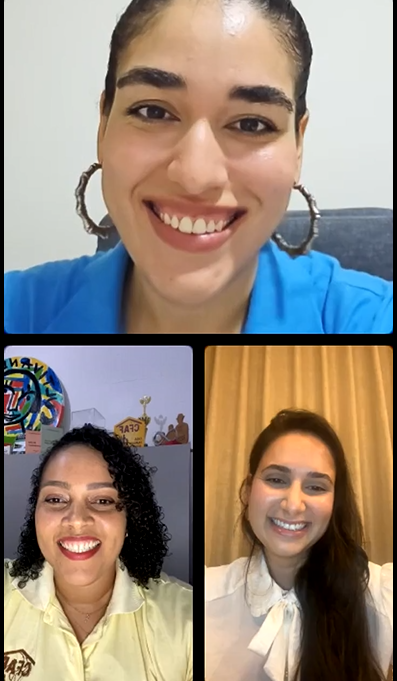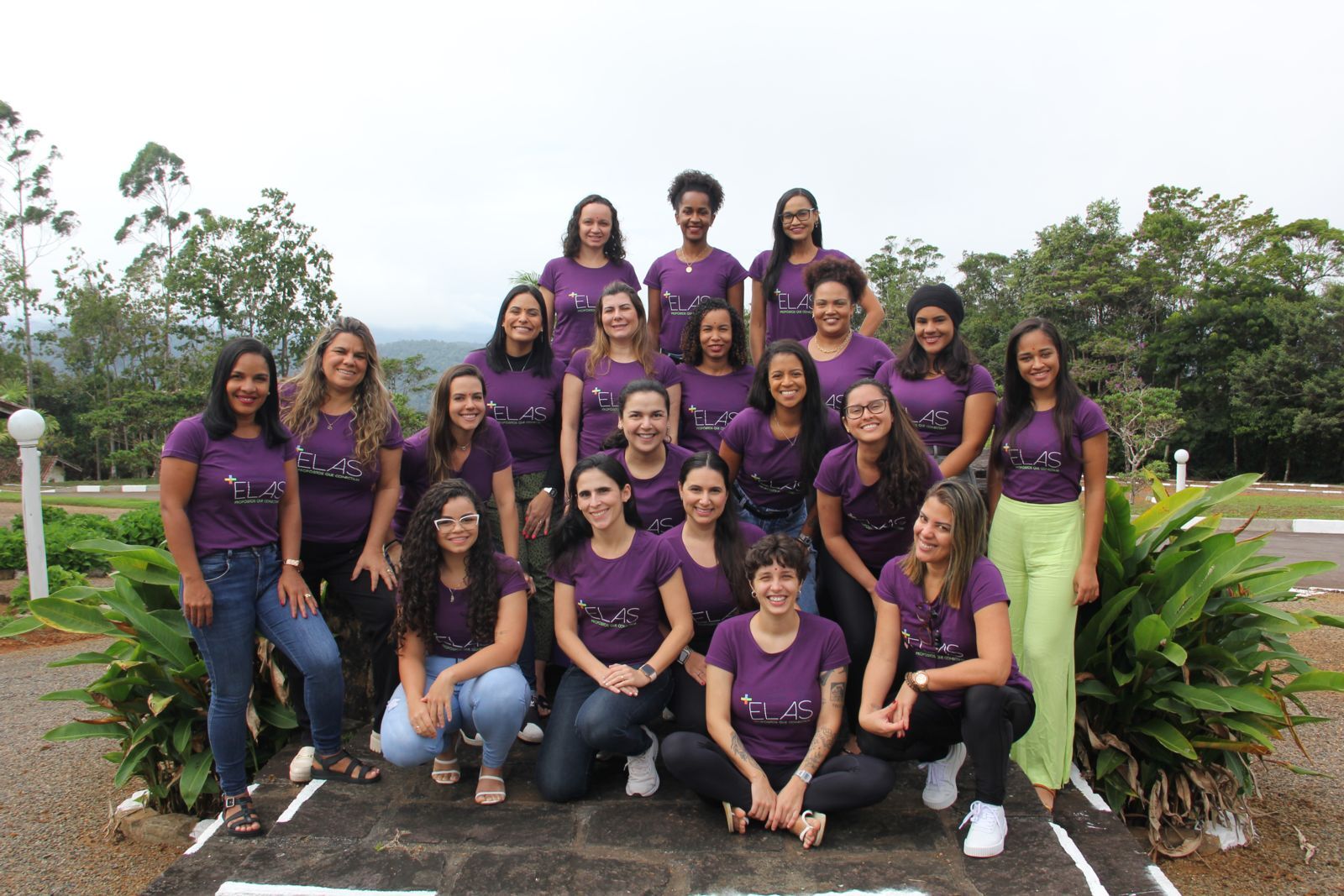Contributing to expanding access to the Our Culture collection, the Norberto Odebrecht Foundation (FNO) has just launched the digital...
Women’s empowerment is the subject of a Norberto Odebrecht Foundation live
DATE: 03/15/2024
International Women’s Day was a proposal adopted by the United Nations (UN) in 1975 to celebrate the social, political and economic achievements of women over the years. As well as paying tribute to female power, the date also serves as a moment to prioritize discussion about the serious gender problems that still persist in our society.
In allusion to this day, the Norberto Odebrecht Foundation held a live on its Instagram on March 8th with the theme “Female Empowerment”. Seeking to provide complementary perspectives on the gender issue, the meeting was attended by two professionals who work in opposite working environments: Andressa Sales, a civil engineer at OR, a real estate development company owned by the Novonor Group, and Helen Nunes, an agronomist and teacher at the Agroforestry Family House (CFAF), which is located in the rural area of the Southern Bahia Lowlands. The live stream was mediated by Isadora Sarno, from the Foundation/Novonor Communications department.

Experiences on women’s empowerment were shared on the Foundation’s Instagram Live Stream
Female empowerment
Over 90% of the global female population lives in countries with low or medium performance in empowerment and gender parity, according to 2023 data from UN Women. In the introduction of the live stream, the concept of empowerment was discussed, relating it to the power and strengthening of women’s social participation, to provide women with the same opportunities, rights, and respect that men have in all areas of life, such as education, leisure, health, and work.
In terms of the work carried out in both agriculture and construction, men represent a quantitative majority. Among the professionals registered with the Federal Council of Engineering and Agronomy (Confea), for example, 80.5% are men and only 19.5% are women. “One of the biggest challenges for women in engineering is the low level of representation. Many decades ago, a woman being in a construction environment was practically unimaginable. Those of us who currently hold these positions have a responsibility to set an example and support women who are entering this job market. Another big challenge is the social mindset, which demands that we always position ourselves very firmly, in pursuit of receiving equal treatment,” reported Andressa.
Achieving gender equality is also a distant reality in the countryside, according to Helen. “Although there is a lot of discussion about the female universe, there is a lot of sexism in rural areas. We still see women who don’t feel comfortable speaking out in the presence of their husbands, because they believe they are not in an equivalent position to them”, she said.
The Family Houses of the Southern Bahia Lowlands, partner institutions in the implementation of the Foundation’s Social Program, are committed to aligning their activities with the UN’s Sustainable Development Goals (SDGs), including SDG 5 on Gender Equality. As a teacher at one of the Houses, Helen spoke in the live stream about the role these institutions have in encouraging female empowerment among students.
“We always make it a priority to bring lectures by leading women and leaders of associations, so that the girls can be inspired. In addition, through our Educational-Productive Projects (PEPs), we show them and their families that women have the capacity to work and develop in the countryside,” she said. The teacher also mentioned another initiative of the Family Houses for women’s inclusion: the monthly distribution of Menstrual Dignity kits. In 2023 alone, 1,318 kits were provided for students.
+ Them

Program + Them boosted participants’ sense of confidence in their careers and personal goals
At the end of the live, the +Them volunteer program, an initiative of the Foundation in partnership with OR, was mentioned by the participants. In the form of mentoring sessions, the project aimed to stimulate female empowerment and brought together women from different areas to discuss issues related to the gender agenda. An initiative of the Novonor Group to promote diversity and equity actions, +Them had its first edition last year, with an immersive meeting in the Southern Bahia Lowlands.
Andressa, a volunteer and mentor, said that despite the title, the learning was mutual. “We met women from completely different backgrounds, but with similar challenges, and we talked about issues that permeate our professional and personal lives. Through our exchange of experiences, we were able to strengthen and support each other,” she said.
Although she was not one of the volunteer participants, Helen told the story of a colleague who is also a monitor at the Family House where she works, and was mentored by +Them. “Using techniques she learned from her +Them mentor, she was able to apply these tips to improve her shyness. This has enabled her to develop better in the classes she teaches,” she concluded.
To watch the full live stream, just click on this link.



No comments